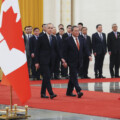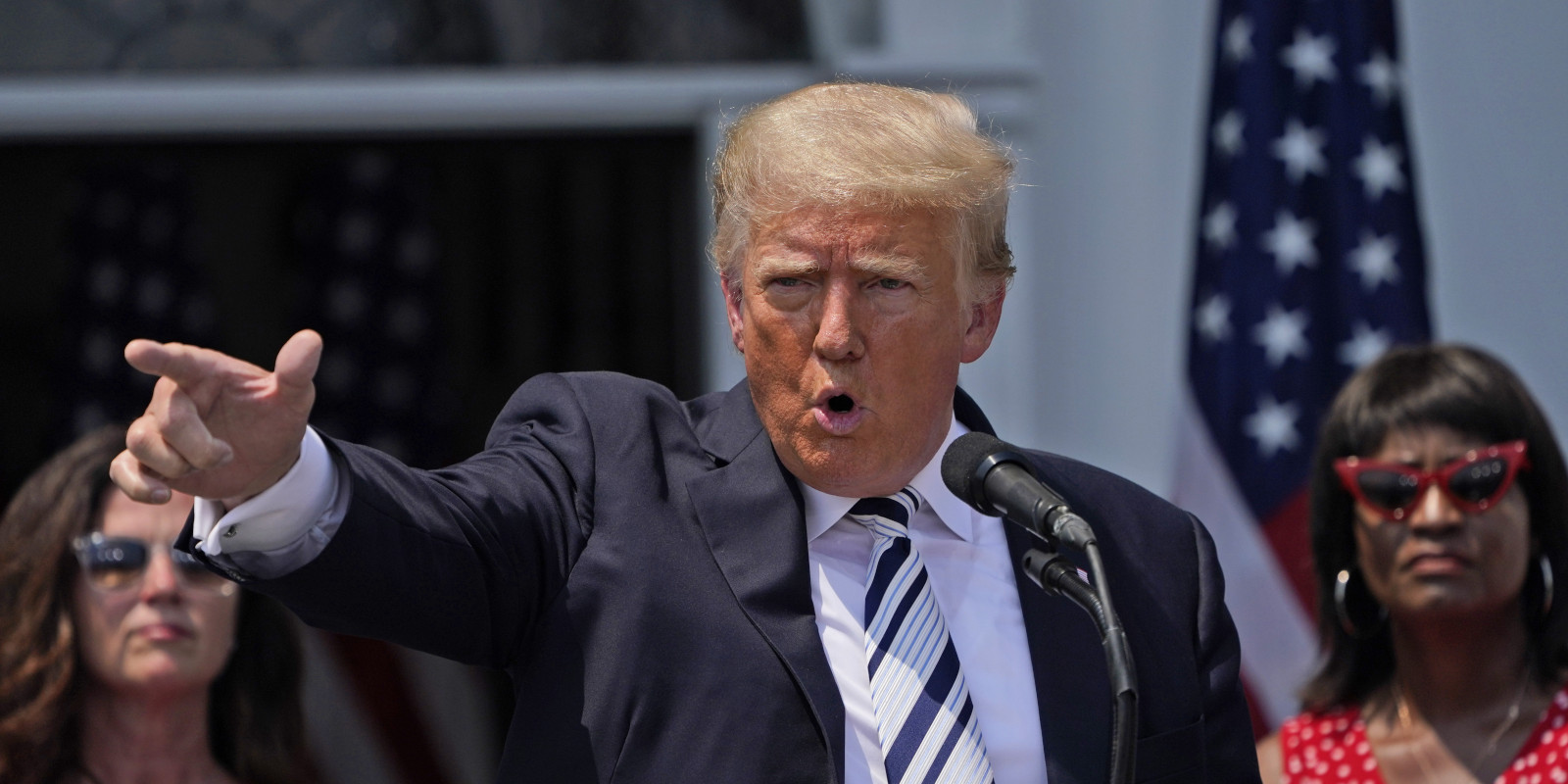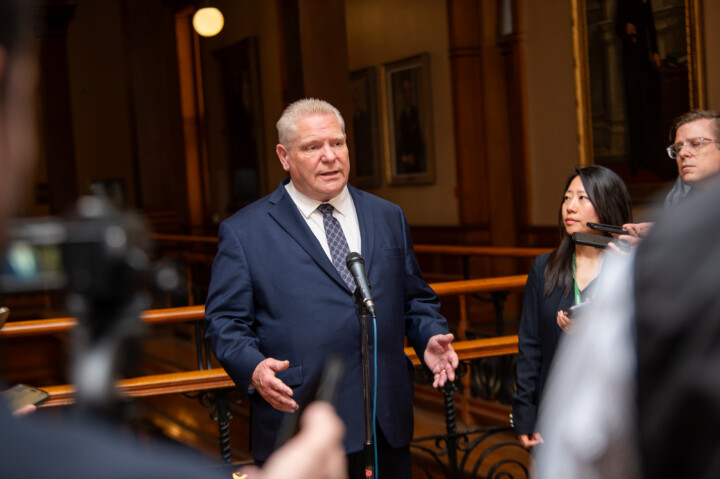The election of Donald Trump in 2016 took a burgeoning media innovation, the journalistic “fact-check” story, and made it a staple of just about every major outlet in North America.
Trump’s penchant for obvious and easily disprovable untruths (and the sheer volume of them) was novel. Trump wasn’t the first politician to lie to voters, of course, but by North American standards, he took it to another level.
In his first few months of office, news organizations had created a cottage industry of counting and debunking the former president’s lies.
The growth of global fact-checking operations grew by nearly 100 percent from 2014 to 2019, according to a recent census by the Duke University Reporters’ Lab. The census found 342 global fact-checkers in the world this year, compared to 277 in 2018 and, despite a slow-down in the last two years, the numbers are still growing.
Media outlets like CNN, the Washington Post and the Associated Press conduct fact-checking, along with standalone organizations that do it exclusively. Facebook has even felt compelled to launch a fact-checking operation for its own platform after reports of misinformation during elections.
And all this in a media industry that appears to be contracting in just about every other way. But amid this steady global growth, it’s worth asking the obvious question: is fact-check journalism accomplishing its goal to better educate the public?
Fact-checking is a double-edged sword
After years of research, the answer seems to be that fact-checking has some effect, but it may not be exactly what the fact-checkers are hoping for. In short, it’s a double-edged sword.
A recent study in the journal Mass Communication and Society by a team of American researchers found that fact-check journalism seems to be effective at correcting people’s mistaken beliefs, but that it can also make them more hostile to the media organization and the journalist publishing the story. Other research has shown that it rarely changes readers’ perception of a candidate.
The researchers believe this shows that there are two parallel psychological paths here. The reader is updating his knowledge of the world, while still engaging in “self-serving information processing.” In other words, the reader’s fervour for their preferred candidate or party stays the same, even though they may have led them astray on the issue in question.
The study is just the latest to show the fundamental challenge of fact-check journalism, mainly that it runs up against the powerful force of motivated reasoning.
Whether liberal or conservative, our brains are “more likely to think information we get is true if it confirms our predispositions and less likely to think it’s true if it contradicts our preconceptions,” said Brendan Nyhan, an American political scientist at Dartmouth College who has studied and written about the topic extensively.
It coincides with a growing sense among political scientists that voters are taking cues from parties on how they should feel about issues, rather than vice versa.
“Partisan voters take the positions they are expected as partisans to take, but do not seem to care about them,” wrote John Zaller, a political scientist at the University of California, Los Angeles.
If voters are getting their positions from the parties, rather than evaluating the issues on the merits, it can partly explain the limited benefits of a fact-check story.
People rarely change their minds about a candidate
Nyhan’s research shows a similar conundrum, mainly that fact-check journalism can successfully help people update their knowledge about an issue, but rarely changes their mind about a candidate.
“Ultimately, we find no evidence that changes in factual beliefs in a claim made by a candidate affect voter preferences during a presidential election,” reads a 2019 paper by Nyhan and other researchers.
This echoes similar research, which shows that a reader can process new information from a fact-check story, understand that a politician has made a false claim, and then retain their original beliefs about the politician who made the claim.
It seems that readers go even farther with their opinions about media outlets: They see the media outlet that conducted the fact-check as even more biased than they did before reading the story, even if the story helped them learn about the issue.
Do fact-checks miss the forest for the trees?
The researchers who wrote the journal article at Mass Communication and Society recruited 510 volunteers through an online survey to read a fact-check story about Trump’s claims about gun laws in Chicago. The participants were then asked to evaluate the former president’s claims and rate the bias of the news source.
Trump’s assertion was that Chicago had the strongest gun laws in the nation and yet was still a “total disaster” in terms of crime. The information about Chicago’s gun laws was a few years old and Trump had a propensity to overstate the level of violence in the city.
Although the study seems to back up previous research on fact-check journalism updating readers’ knowledge, this study is limited to a single story and, although researchers controlled for a “Trump effect,” it was being conducted in the unique media environment that swirled around the former president. It could be that Canada, or the U.S. in the post-Trump world, wouldn’t show the same effects.
The Chicago gun laws fact-check story used by the researchers is also a good illustration of the more nebulous issues with this kind of journalism. The fact-check piece corrects several incorrect statements by Trump, but fails to tackle the substance of what he was arguing.
Trump said Chicago has the strongest gun laws in the nation and the highest crime rate: both inarguably false statements. But, it’s also true that Chicago has a high crime rate (ranked seventh in murder rate) and has strong gun laws (Illinois gets an A- and is ranked 8th in this scorecard).
Trump’s inability to get these basic facts right was obviously a concern for the media and the public, but it could be at the expense of ignoring the broader issue. It could be that readers sympathetic to Trump, or his argument, would reasonably consider the fact-check’s angle on the issue to be biased, because it focused on the narrow untrue statements, rather than legitimate concerns about the efficacy of some gun laws.
Nyhan said that although success of the genre and the results of fact-check journalism are mixed, he still believes it can serve an important purpose by keeping politicians in check.
“In particular I think it provides an important check on political elites who don’t receive very strong negative feedback or repercussions when they make false or misleading statements,” said Nyhan.
Recommended for You

‘The mainstream media forfeited so much trust’: Former New York Times editor on how activism kills journalism

‘We’ve seen this movie before’: Why Carney is rolling out the welcome mat for Chinese state media

Reports reveal the CBC’s anti-Israel bias, and Canada’s revolving-door policing continues: Roundup

‘It has tricked tens of thousands’: How AI deepfakes are corrosive to journalism and social cohesion



